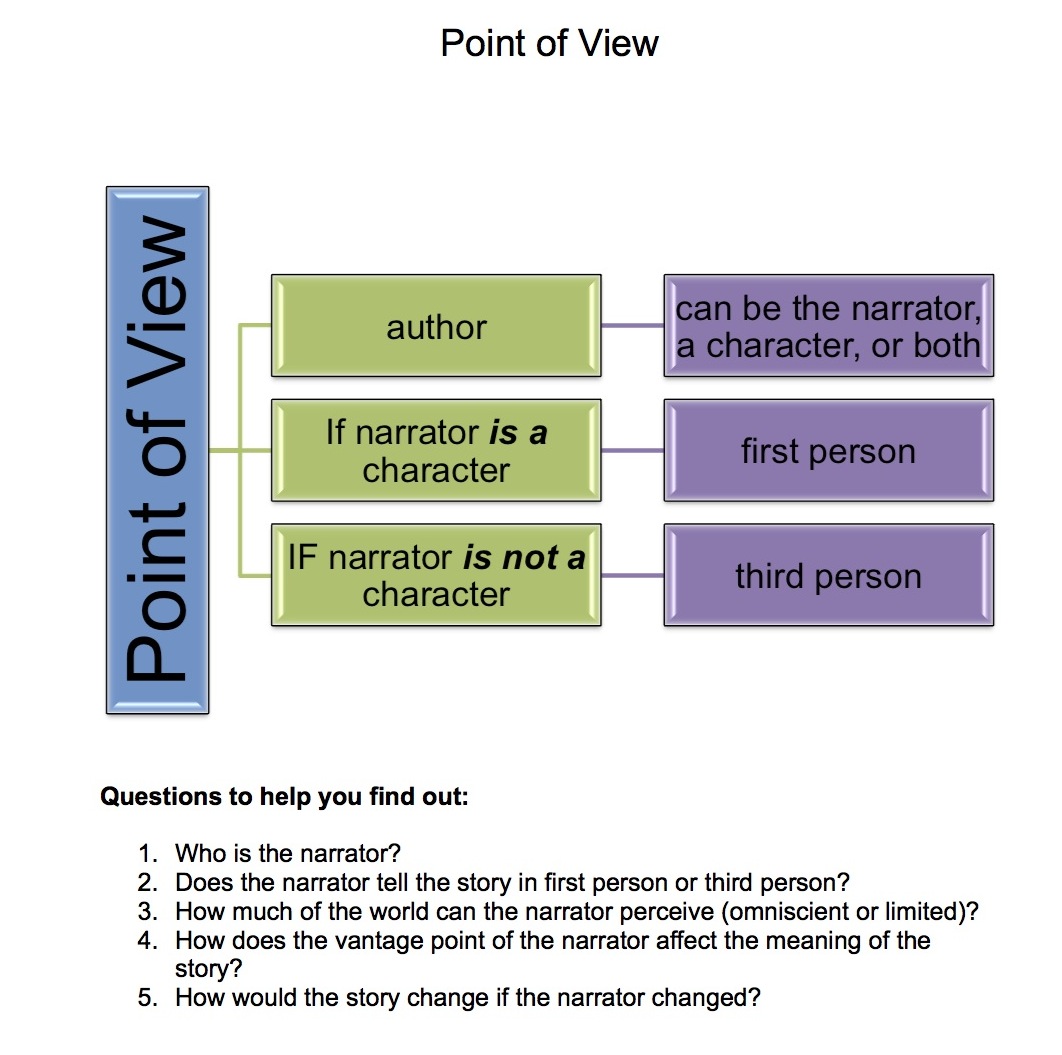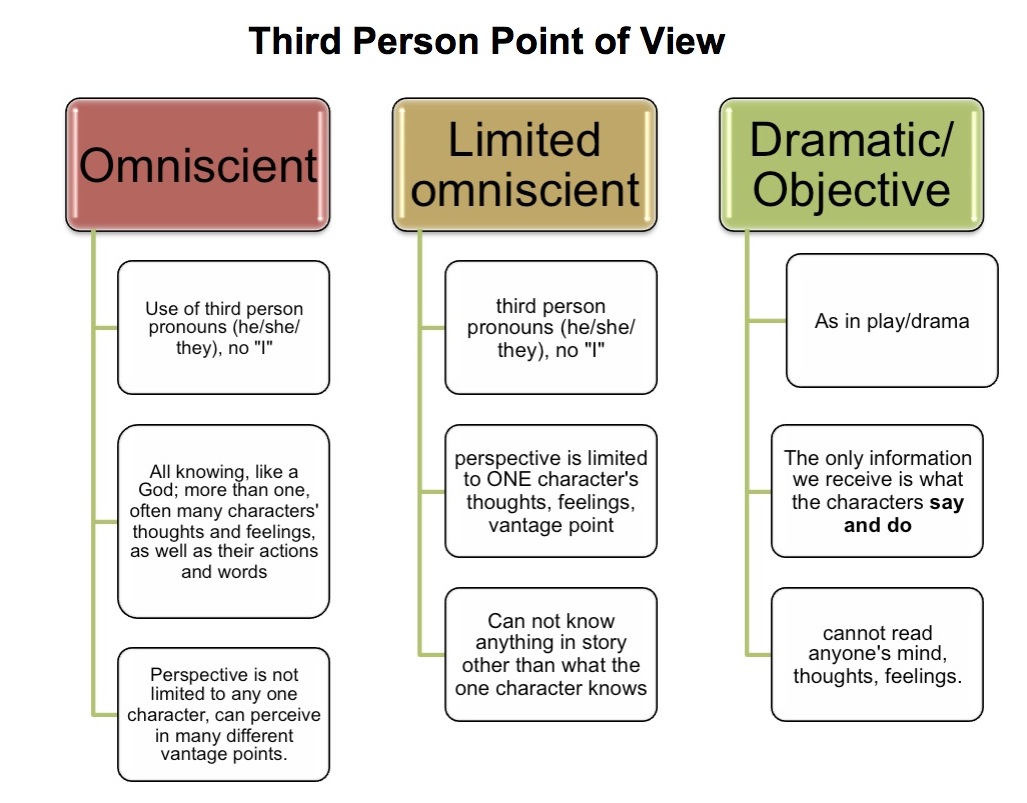Personal and Social Responsibility
ASSIGNMENT 3: "I Lost My Talk"
|
Learning Target (Curricular Competencies):
|
Task:
Point of View
A story has an author, a narrator, and characters, not to be confused with each other. If the narrator and a character in the story are one and the same, you have a story told in first person. If they are separate, you have a story told in third person, of which there are three different types, depending on the amount of knowledge the narrator has about the inner feelings and thoughts of the characters.
Here's a really simple one! Read Charles Simic's poem, "Stone". This poem is from an inanimate object's point of view in the first person. We know this because of the use of the first person pronoun "I".
Here comes the complicated part! Now read "I Lost My Talk" by Rita Joe. Consider the point of view. Ask yourself the 5 questions as you read the poem.
Not only is it important to ask yourself who is the narrator and what is she saying in her poetry, it is also important to understand the background of the poet. Read the background information provided on the next page on Rita Joe, a famous Mi'kmaw poet and songwriter, so you can better understand her point of view. What is her message? Why has she chosen the first person? What is the impact of this point of view?
You must watch this video on Rita Joe before you begin to write such an emotionally charged assignment.
Your task is to write either a poem/song or a short piece of fiction or non-fiction from the point of view of a person of indigenous descent who has communicated their thoughts on disempowerment, as well. You might consider doing some background research on residential schools and other Canadian Aboriginal writers.
Here is an example of a student song based on Rita Joe's poem.
Assessment: Below you will find the exemplary criteria used to assess the assignment.
Learning Target: (Exemplary 6/6): Exemplary comprehension of the task and clear accomplishment of the objective. Student demonstrates critical, creative, and reflective thinking to explore how perspective communicates personal and cultural values, beliefs, and diversity recognizing the role of storytelling and oral tradition in First Peoples societies. Final product demonstrates an understanding from a societal perspective as well as a personal perspective and communicates that understanding with creativity, respect, depth, and insight.
Written Expression: Exemplary (6/6): Sentence structure and vocabulary are varied, skillfully written, and carefully chosen. Work has been proofread and there are few or no errors in spelling, capitalization, punctuation, and grammar. Content contributes to the central idea and makes insightful connections with logical organization.
Submission:
Use the "4.3 I Lost My Talk" link on the main page of this section of the course to upload your assignment to your teacher for marking.

